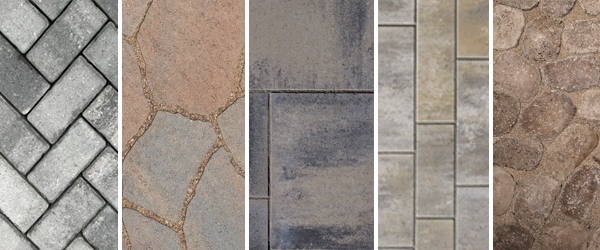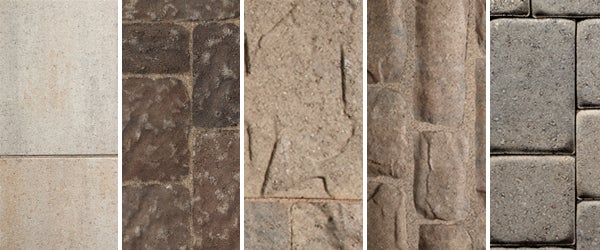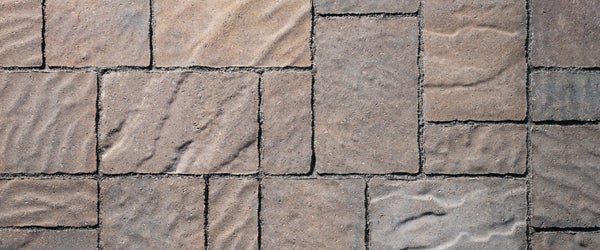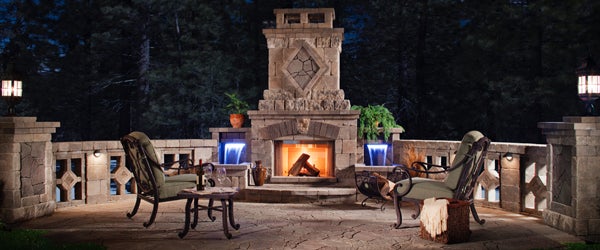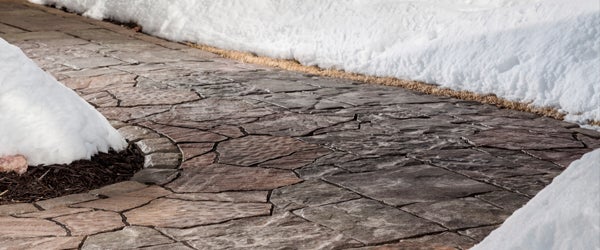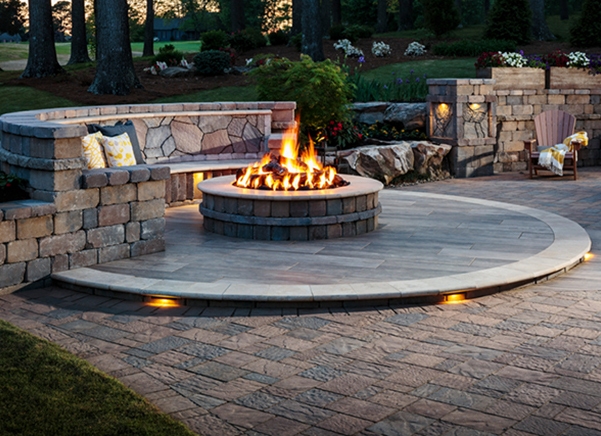When planning a paver project, it’s important to know that not all pavers are equal. When comparing concrete pavers versus brick pavers, it’s particularly essential to understand the differences between the two, and the multiple benefits of choosing concrete pavers over traditional clay brick.
Paver Sizes & Shapes
Concrete pavers come in a tremendous variety of shapes and sizes –- from small 4″x8″ and 6″x6″ all that way up to 24” slabs, as well as irregular and plank shapes. Clay brick pavers typically only come in 4″x8″ sizes.
Paver Finishes & Styles
While brick pavers all have a similar face, concrete pavers are available in an endless array of finishes — including smooth finishes, natural stone textures, cobbled looks, antique tumbled looks and more. Most concrete paver finishes incorporate blends of colors, and many have unique faces created with specialized aggregates.
Paver Colors
Clay brick pavers are typically only available in a limited number of shades or color blends. However, concrete pavers are available in a wide array of hues and color blends — including warm color tones, cool color tones, deep shades, and variegated color blends. This allows for greater design flexibility and the ability to create more coordinated outdoor designs. Unlike most brick pavers, some concrete pavers also have built-in protectants to help prevent the color from fading over time.
Consistent Paver Sizes
Concrete pavers are made in a highly controlled environment, allowing for more uniformed and consistent shapes and sizes within a particular style. This allows for more efficient installation. Brick pavers can often be warped as part of the firing process, which can make installation more challenging.
Coordinating Design Elements
Concrete pavers are often designed to specifically coordinate with adjacent vertical products — such as retaining walls, outdoor kitchen and fireplace kits and fire pit kits — in terms of style, texture and color. This makes it easier to plan coordinated outdoor living spaces. Although clay bricks can be used to construct vertical design elements, doing so is a longer, more complex masonry process.
Paver Design Flexibility
With brick pavers, designs are limited to running bond, herringbone and basket-weave paver laying patterns. However, with concrete pavers, the design options are endless. You can mix and match various shapes, sizes, finishes and colors to create unique outdoor living designs.
Paver Durability
Clay is fairly unpredictable, and some clay bricks are prone to cracking in freeze/thaw environments. Belgard concrete pavers are manufactured to handle extreme weather conditions and come with a lifetime transferable warranty against cracking or breaking.
